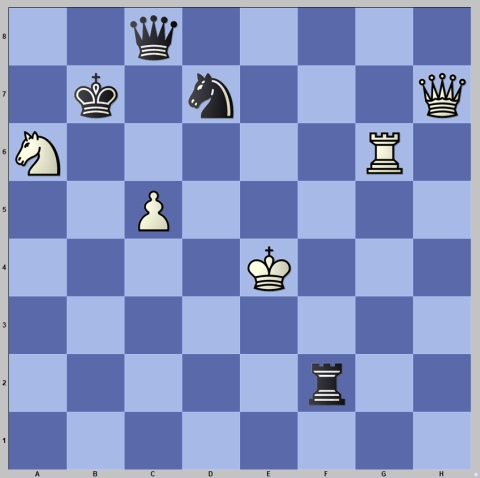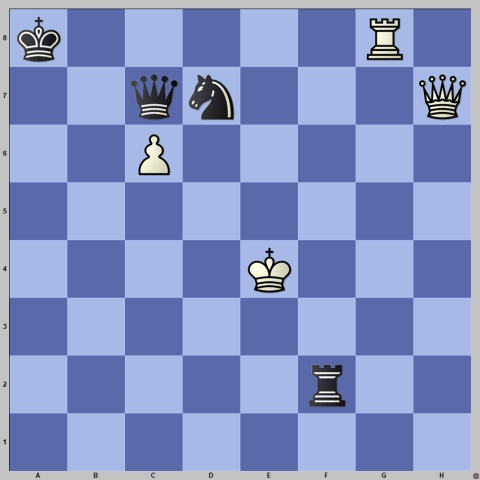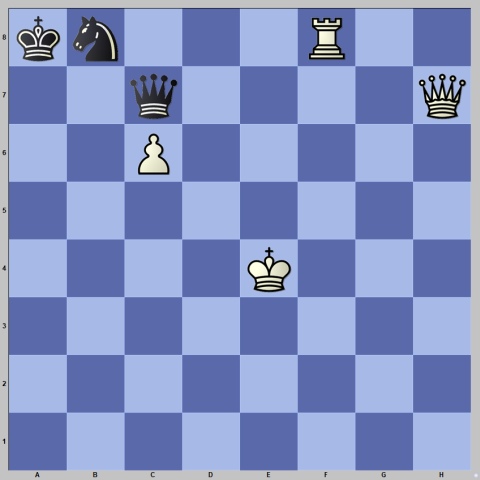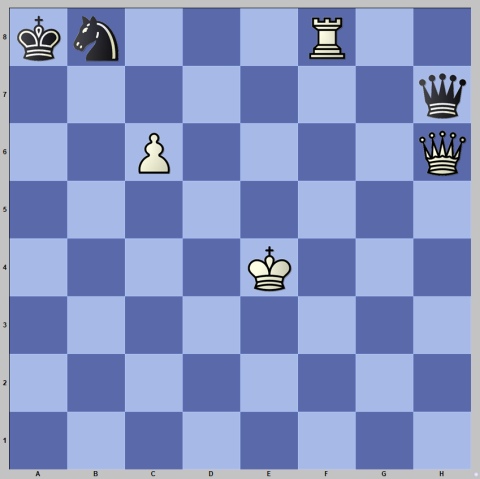Chess composition dates back to the first Arabic manuscripts on chess. Throughout history, the theory of composition has kept defining and collecting the patterns of chess beauty, record achievements, schools, styles, and fashions – as all the forms of art.
One of the milestones was the first international chess tournament in London (1851), followed by the first international tourney in chess composition. Since then, composing competitions have become the driving force of chess composition. Composers compete with the achievements of their great predecessors to add some quality, intensity, elegancy, and originality… At the same time, they do it for the sake of chess solvers: to entertain, puzzle or amaze the coming generations. What would solvers do without new composers?
Over the last decades, the FIDE World Cup in Composing has been one of the most important events to inspire new masterpieces, and this year’s edition is no exception. In the next several weeks, until mid-June, chess composers worldwide will prepare and polish their creations for the 11th FIDE World Cup in Composing 2023. As usual, the competition will be held in eight different sections and judged by well-known experts in each genre.
The sections are:
A. Twomovers – Judge: Gerard Doukhan (France)
B. Threemovers – Judge: Jean-Marc Loustau (France)
C. Moremovers – Judge: Ralf Krätschmer (Germany)
D. Endgame studies – Judge:Branislav Djurašević (Serbia)
E. Helpmates – Judge: János Csák (Hungary)
F. Selfmates – Judge: Zoran Gavrilovski (North Macedonia)
G. Fairies – Judge: Borislav Gadjanski (Serbia)
H. Retros (Proofgames) – Judge: Thomas Brand (Germany)
There are no set themes. Each participant can submit only one entry per section to the tournament director Alexey Oganesjan (alexeioganesyan@gmail.com), until June 15, 2023. After careful checking and evaluating all anonymous entries, the judges will prepare preliminary awards by August 15, leaving two weeks for appeals before finalizing the awards for publication on the World Federation for Chess Composition website by September 1.
In each section, the Cup winner will receive a monetary prize of 500 Euro, a Cup, a medal, and a certificate. Composers taking 2nd and 3rd places will be awarded medals and respective certificates. The prizes and other distinctions will be presented to the winners at the World Congress of Chess Composition 2023 closing ceremony in Batumi (Georgia) on September 8.
The previous editions of the FIDE World Cup have inspired many memorable compositions. Here is one of them:
Mirko Miljanić, 1st Prize 4th FIDE World Cup 2015

White to play and win
White has an advantage and attack, but Black may count on perpetual or – in the later stage – on stalemate:
1.c6+ Ka8 2.Nc7+! (2.Qxd7? Re2+! 3.Kf3 Qf8+ 4.K×e2 Qf3+! 5.Kxf3 stalemate) 2…Qxc7 3.Rg8+

3…Rf8! 4.Rxf8+ (3…Nf8 4.Qxc7; 3…Ka7 4.Qxd7 Rf4+ 5.Ke3 Rf7 6.Qd4+!) 4…Nb8.

5.Qh6! Qh7+! (5…Qe7+ 6.Kd5 Qb4 7.Qc1)

6.Rf5! Qxh6 7.Ra5+ Na6 8.Rxa6+ Kb8 9.c7+ Kxc7 10.Rxh6 +-
The comment by the judge of the FIDE World Cup 2015, the Grandmaster of the FIDE for chess composition Yochanan Afek:
“Brilliant sacrificial anti-stalemate play on an open board, with the heavy cannons absolutely free. The battery Rook-pawn is created already in the first move to trap the black queen by checking her king should he move to the sixth rank. Following an amazing journey highlighted by 6.Rf5!! the very same rook eventually lands on the other side of the very same line to complete the initial job by role exchanges with the pawn in regards to the enemy royal couple. A highly original concept presented in an exemplary setting. A remarkable achievement!”
While the most ambitious chess composers will be trying their best in the 11th FIDE World Cup, “Generation Z” will try to reach their own heights in the 7th Youth Chess Composing Challenge. This WFCC competition is open to all U23 composers (born in 2000 and later), matching the limit for juniors in the WFCC solving competition. There are three sections, two of them with the set thematic conditions (mate in 2 and endgame studies), and the 3rd one is open to all genres, with no restrictions in length and content.
The YCCC Project includes a workshop mentored by some of the leading chess composers in the world. The deadline for the 7th YCCC is one month longer (July 15) than for the 11th FIDE World Cup (June 15), but the results will be announced at the same time, during the closing ceremony of the Batumi WCCC, on September 8, 2023.
Official website: https://www.wfcc.ch/
Text: Marjan Kovačević, WFCC President

